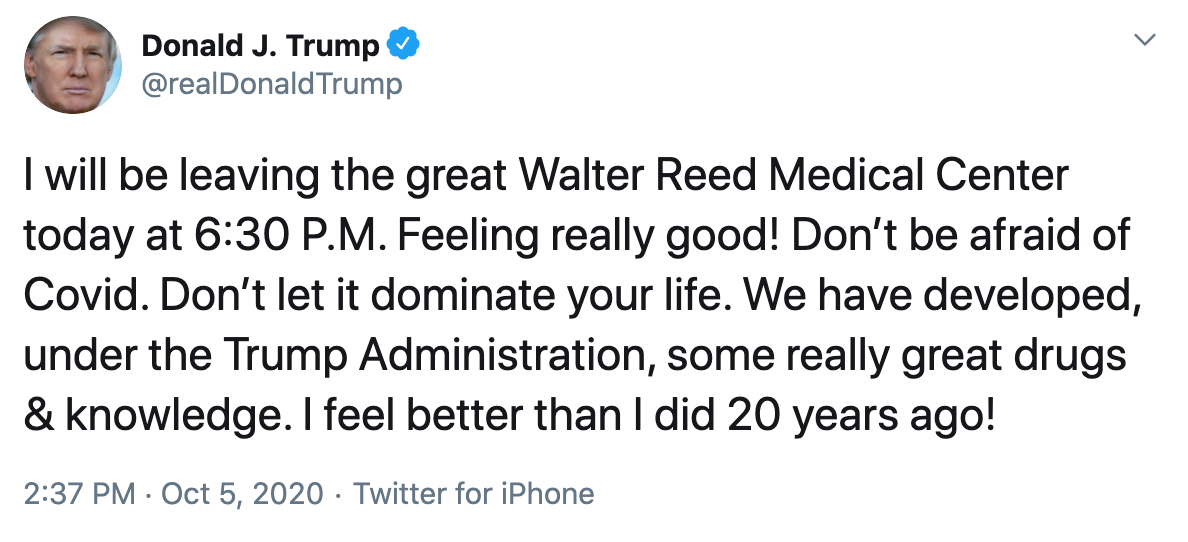- Center on Health Equity & Access
- Clinical
- Health Care Cost
- Health Care Delivery
- Insurance
- Policy
- Technology
- Value-Based Care
Trump to Be Discharged From Hospital Despite Continued COVID-19 Treatments
About 3 days after being airlifted to the hospital to be treated for symptoms stemming from coronavirus disease 2019 (COVID-19) infection, the president is returning to the White House.
A little over 3 days since President Donald Trump was airlifted to Walter Reed National Military Medical Center to be treated for symptoms stemming from his coronavirus disease 2019 (COVID-19) infection, he is expected to be discharged.
The president tweeted that he was “feeling really good” and would leave Walter Reed at 6:30 pm.

The president will return to the White House, where he will continue to be treated and monitored, White House physician Sean Conley, DO, said during a press briefing outside Walter Reed. He added that it had been 72 hours since the president’s last fever and that all his oxygen levels are now normal. This follows reports over the weekend that the president’s oxygen levels had dropped twice.
“Though he may not entirely be out of the woods yet, the team and I agree that all our evaluations, and most importantly his clinical status, support the president’s safe return home, where he’ll be surrounded by world class medical care, 24/7,” Conley said.
The President’s Treatment
Since his positive test result, the president has received multiple treatments. First, he received a single dose of Regeneron’s investigational antibody cocktail. This treatment was given as a “precautionary measure,” according to Conley. This treatment is still being studied, although Regeneron had released positive results that the antibody cocktail reduced viral levels and improved symptoms in nonhospitalized patients with COVID-19.
In addition, the president has been treated with remdesivir and dexamethasone since entering Walter Reed. According to Brian Garibaldi, MD, associate professor of medicine and director of the Johns Hopkins Biocontainment Unit at Johns Hopkins Medicine, and part of the president’s medical team at Walter Reed, Trump tolerated the third dose of remdesivir without difficulty and his kidney and liver functions are normal.
The president will receive a fourth dose of remdesivir before he returns to the White House and his fifth and final dose of the regimen at the White House tomorrow evening.
On May 1, the FDA granted Gilead Sciences with an emergency use authorization for remdesivir to be used in treating COVID-19. Data had shown that the treatment accelerated recovery in individuals with advanced COVID-19 and lung involvement.
Compared with patients who received a placebo, patients on remdesivir had a 31% faster recovery time, with a mortality rate of 8.0% vs 11.6% in the placebo group.
Remdesivir was first developed to fight Ebola, although clinical trials for that disease yielded disappointing results.
In addition to remdesivir, the president continues to be on dexamethasone, a steroid that was added to his treatment on October 4. So far, the steroid has been used in severely ill patients with COVID-19. According to Science, there have actually been indications that treating patients with dexamethasone too early in the disease course could be harmful and that the side effects of the drug can include agitation, paranoia, and psychosis.
